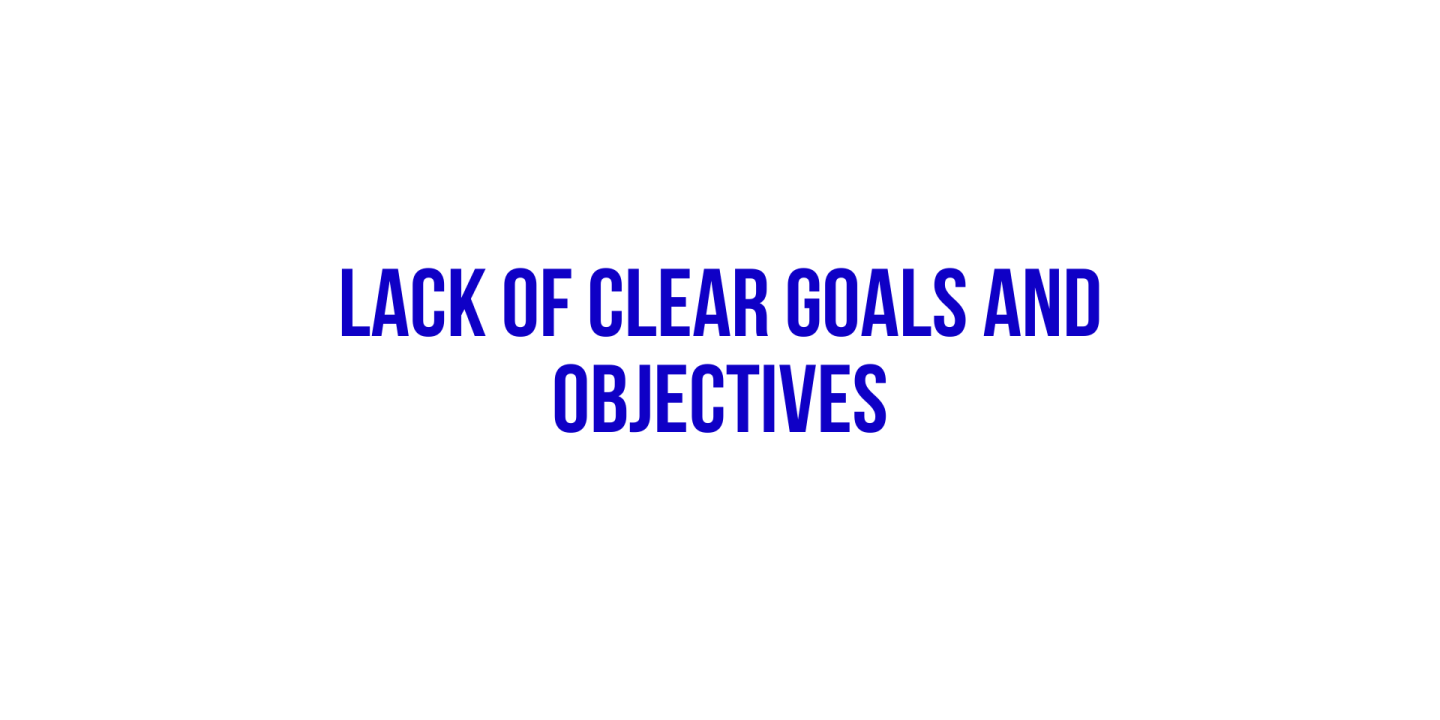The lack of clear goals and objectives is a common issue that can have a significant impact on the motivation and performance of a team. When individuals are uncertain about what is expected of them, it can lead to confusion, frustration, and a lack of direction. Here is a description, reflection and a solution for this problem.
Description: Lack of clear goals and objectives can be caused by various factors, such as poor communication from management, unclear job descriptions, or a lack of goal-setting processes. This can lead to a lack of clarity on priorities and a mismatch between individual and team goals.
Reflection: A lack of clear goals and objectives can be detrimental to team morale and motivation. Without a clear understanding of what they are working towards, individuals may feel disengaged and may lack a sense of purpose. Additionally, it can lead to decreased productivity, as team members may not be able to focus their efforts effectively.
Solution: To solve the issue of lack of clear goals and objectives, it is important to establish a clear and concise goal-setting process. This can be done through:
Communication from management: Management should clearly communicate the company’s goals and objectives to all team members, so that everyone has a clear understanding of what is expected.
Define roles and responsibilities: Job descriptions should be clearly defined and communicated to ensure that everyone knows what is expected of them.
Establish goal-setting processes: Teams should be encouraged to set goals together and to regularly review progress towards these goals. This can be done through regular team meetings or performance reviews.
Encourage employee input: Employees should be encouraged to provide input into the goal-setting process, as this can help to increase motivation and engagement.
By implementing these strategies, a lack of clear goals and objectives can be effectively addressed and the motivation and performance of a team can be improved.

Tim Hoiseth is a renowned business psychologist and author of multiple books. Tim is dedicated to helping organizations and teams build their capacity to meet future challenges. With a focus on team and organizational abilities, Tim has helped numerous companies develop strategies for success in an ever-changing business landscape. His expertise in the field of organisational psychology and his understanding of the needs of modern organizations make him a valuable asset for any company looking to build a strong and resilient workforce.
